Russia on Vienna talks: Nothing is agreed until everything is agreed
Russia’s representative to the international organizations in Vienna says talks underway in the Austrian capital on a potential revival of the 2015 Iran nuclear deal may need “additional time” to reach a breakthrough, emphasizing that nothing is agreed until everything is agreed.
Mikhail Ulyanov made the remarks in a tweet on Wednesday in response to reports that Moscow was optimistic about progress in the Vienna talks between the parties to the Joint Comprehensive Plan of Action (JCPOA).
“Not necessarily. We simply observe steady progress at the Vienna talks on #JCPOA. We recognize this obvious fact. But we are always cautious in our assessments: nothing is agreed until everything is agreed. We are very close to this stage but it may take additional time,” he wrote.
In another tweet, Ulyanov said, “I envy political analysts who make their judgments so easily on the most complicated world problems. My recommendation: don’t make hasty conclusions.”
Envoys from Iran and the P4+1 group of countries — Britain, France, Russia, and China plus Germany — have been holding talks in Vienna aimed at revitalizing the JCPOA and bringing the US back to compliance.
A US delegation is also in the Austrian capital, but it is not attending the discussions because the United States is not a party to the nuclear accord.
Former US president Donald Trump abandoned the deal and reimposed the anti-Iran sanctions that the JCPOA had lifted. He also placed additional sanctions on Iran under other pretexts not related to the nuclear case as part of the “maximum pressure” campaign.
Following a year of strategic patience, Iran resorted to its legal rights stipulated in Article 26 of the JCPOA, which grants a party the right to suspend its contractual commitments in case of non-compliance by other signatories, and let go of some of the restrictions imposed on its nuclear energy program.
Now, the new US administration says it wants to compensate for Trump’s mistake and rejoin the deal, but it is showing an overriding propensity for maintaining some of the sanctions as a tool of pressure.
Tehran insists that all sanctions should first be removed in a verifiable manner before the Islamic Republic reverses its remedial measures.
EU says resolved to bring JCPOA back on track
On Tuesday, Peter Stano, a spokesman for EU foreign policy chief Josep Borrell, said the European External Action Service is committed to take all possible measures towards reviving the JCPOA.
Some difficult issues still remain in the Vienna talks, but the negotiators continue the path to achieve their ultimate goal, which is the full implementation of the JCPOA by all parties and signatories, he noted during a press conference.
BRICS urges peaceful resolution of Iran nuclear issues
Additionally, the world's five major emerging economies (BRICS) - Brazil, Russia, India, China and South Africa - called for a peaceful solution to the issues related to Iran's nuclear program.
After a virtual meeting, the BRICS foreign ministers stressed in a final statement the need for the diplomatic settlement of Iran's nuclear issues.
"The foreign ministers stressed the need to resolve the Iranian nuclear issue through peaceful, diplomatic and international law, and called for the full implementation of Security Council Resolution 2231," the statement read.
It also welcomed the one-month extension of an understanding between Iran and the International Atomic Energy Agency (IAEA) to keep nuclear inspections alive.
Diplomat discourages recourse to pressure, intimidation, confrontation against Iran
UN: 2024 deadliest year for aid workers amid genocide in Gaza
Gaza health official warns of hospital shutdowns within 48 hours
Israel kills 5 more paramedics in southern Lebanon: Health ministry
Iran to launch ‘new, advanced’ centrifuges in response to IAEA resolution: AEOI
Yemen fires hypersonic missile at Israeli airbase
VIDEO | New Delhi chokes under toxic smog as air quality remains at hazardous levels
VIDEO | Press TV's news headlines


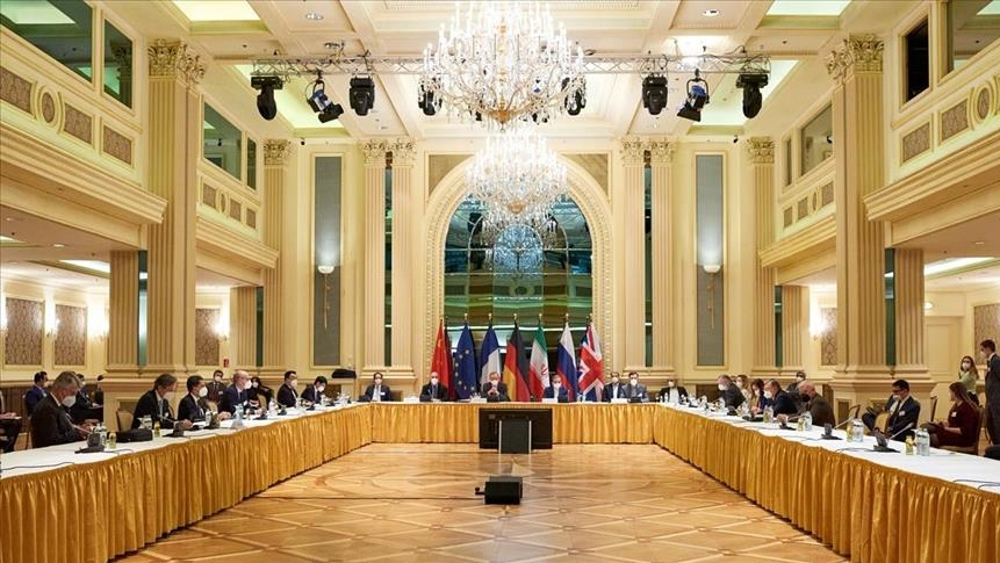

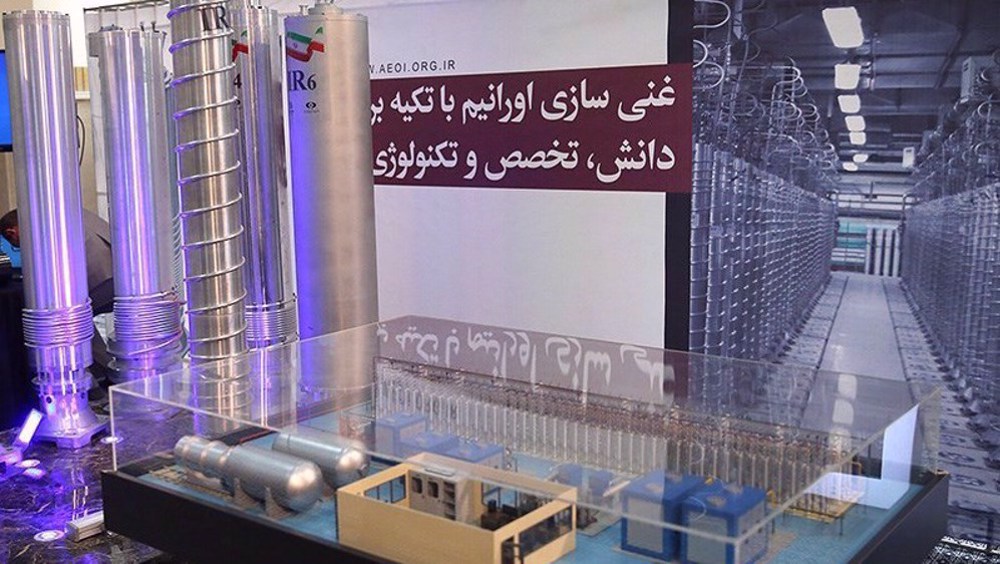
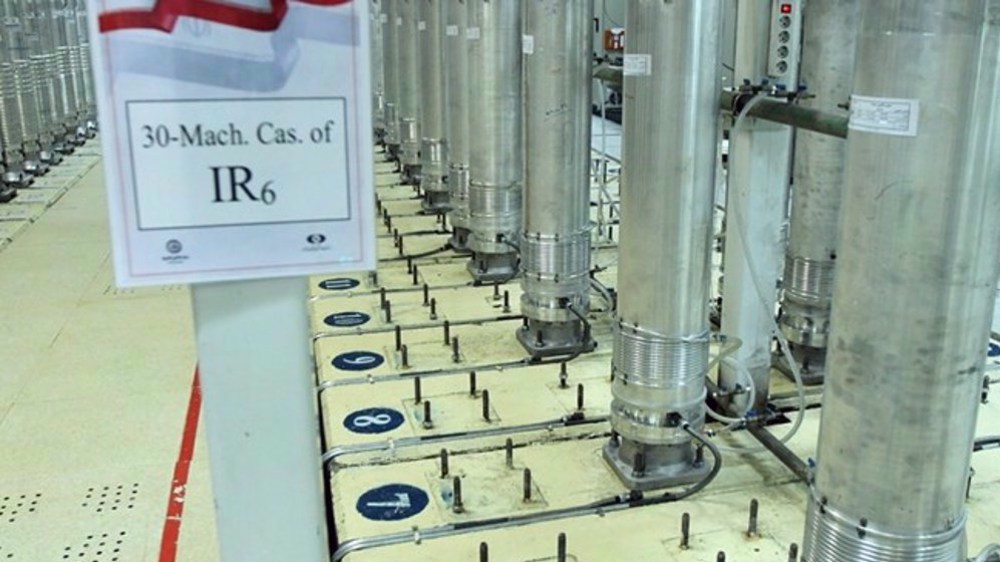
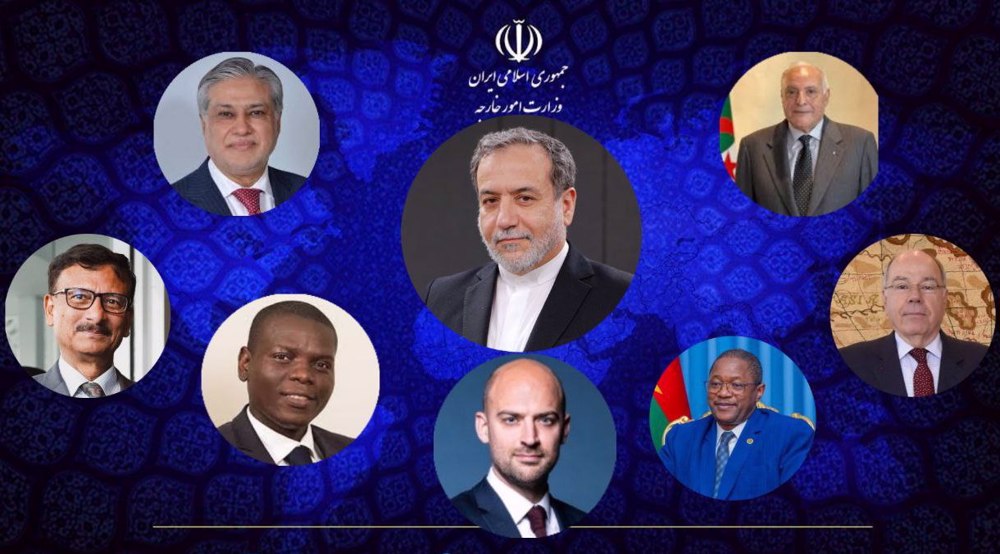



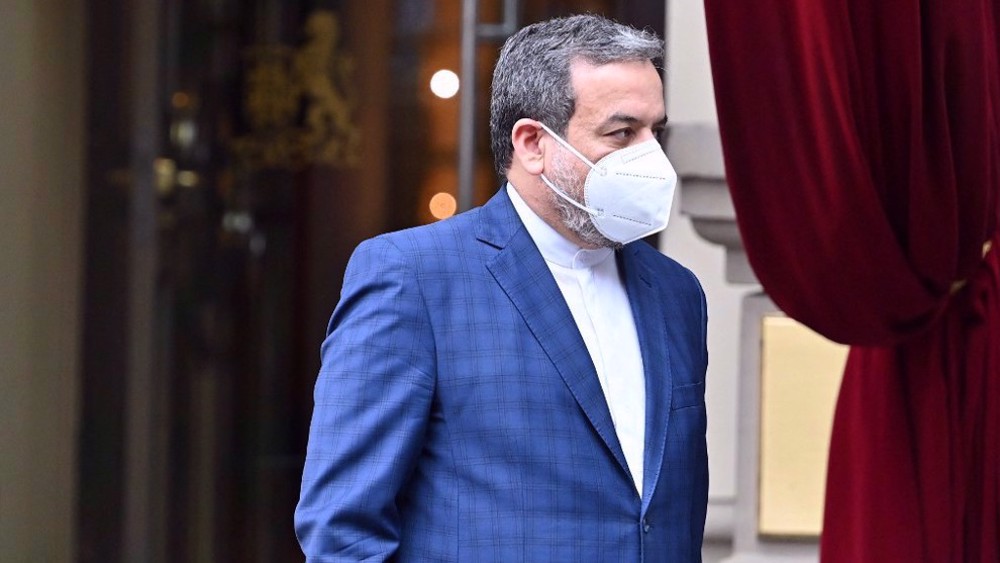
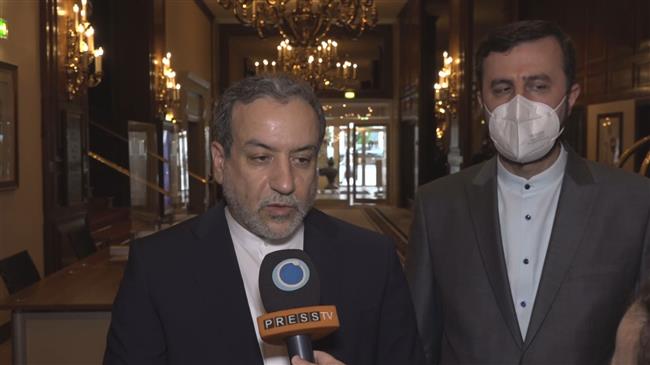
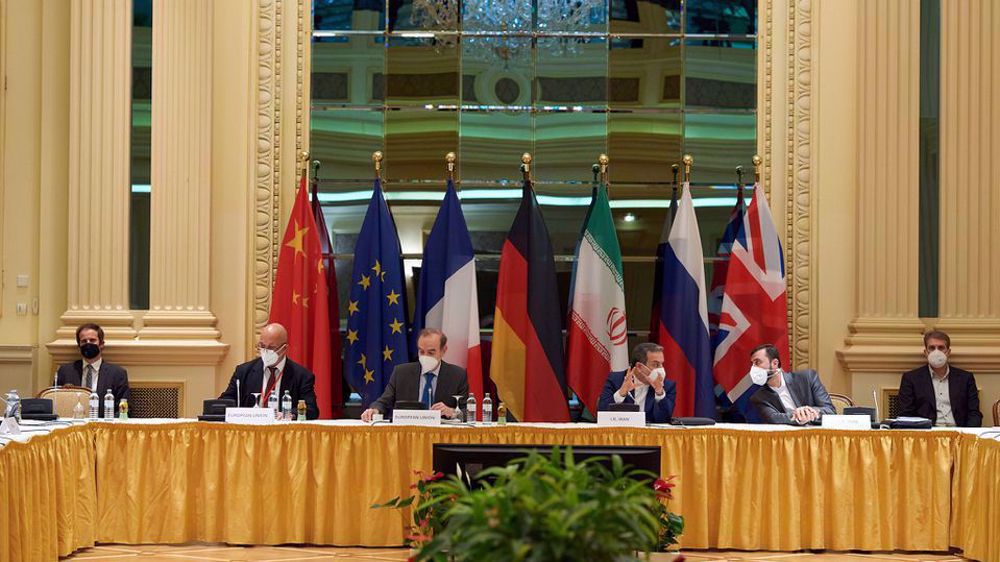
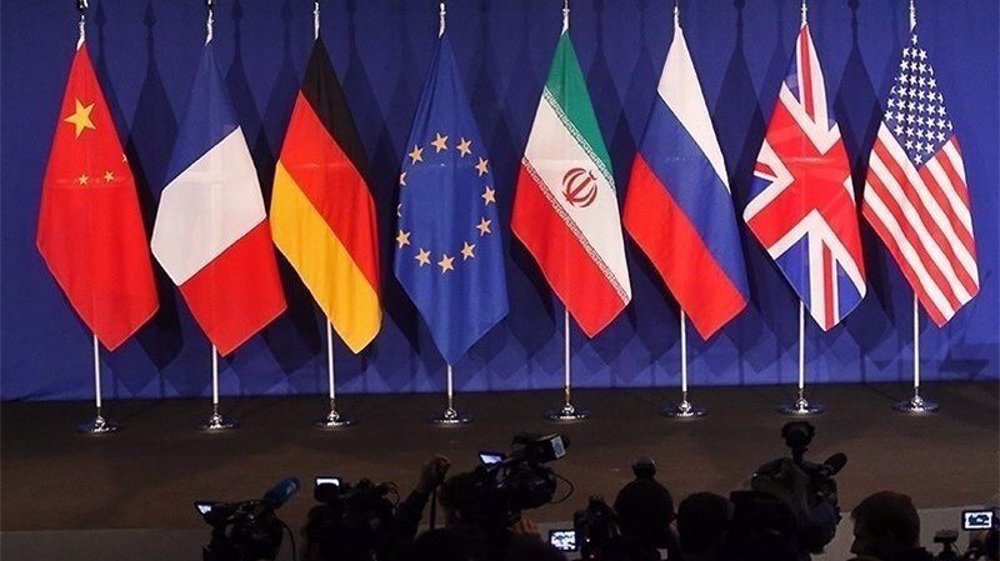
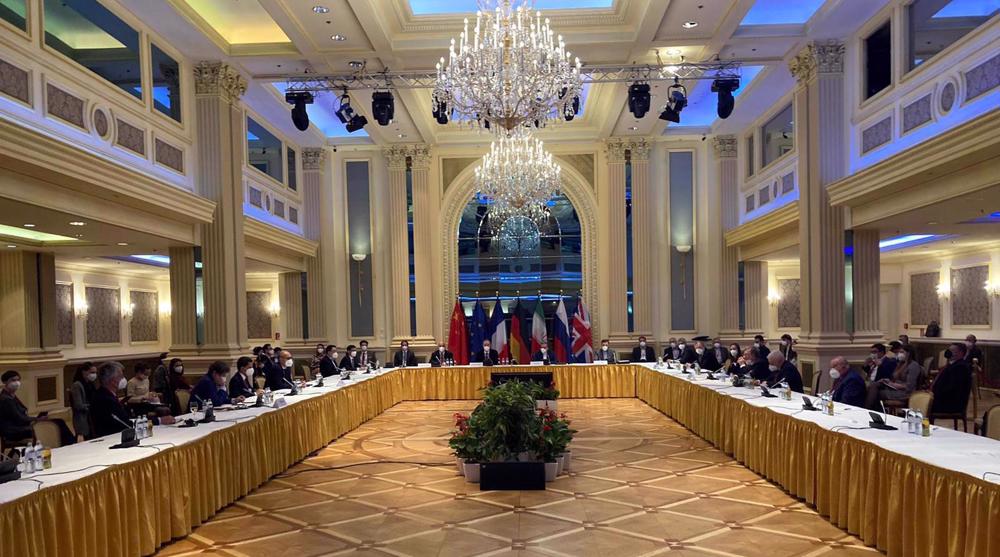
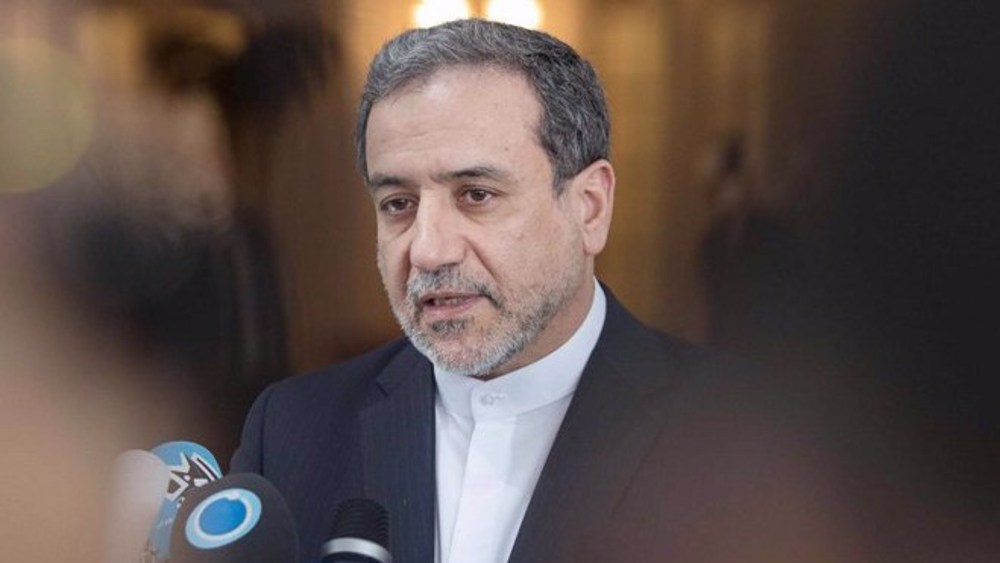

 This makes it easy to access the Press TV website
This makes it easy to access the Press TV website